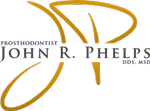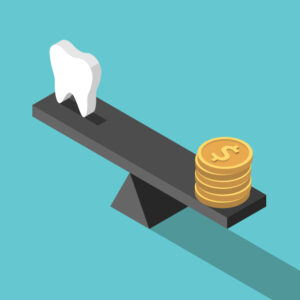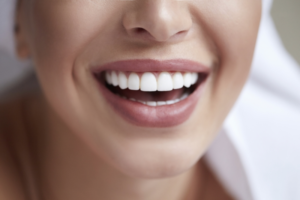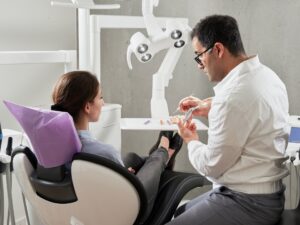DIY teeth whiteners are becoming increasingly popular as bloggers and influencers peddle them as “natural” alternatives to traditional teeth whitening. Two of the trendiest methods are brushing with activated charcoal and coconut oil pulling (gargling and swishing coconut oil in your mouth).
Whether these methods work is another matter. Studies have shown that coconut oil can improve oral health, but not whiten teeth. There is no evidence that charcoal whitens teeth at all. In fact, it can actually harm them.
Here’s a guide to the science behind how coconut oil and charcoal work (or don’t). In the end, there’s no substitute for professional teeth whitening. Dr. John R. Phelps has nearly three decades of experience making people’s smiles more radiant. If you live in Carmel, Noblesville, or the greater Indianapolis area, call 317-548-6217today to schedule a teeth whitening consultation.
What is Activated Charcoal?
Charcoal is formed by heating carbon-based substances, usually wood or peat, in the absence of oxygen. Activated charcoal is created by subjecting charcoal to hot gases, which are then burned off. This process makes the charcoal porous by covering the surface with tiny holes.
This porosity makes activated charcoal highly absorbent. Because of that, it does have accepted medical uses. Activated charcoal is highly useful as a treatment for poisoning or prescription drug overdoses. Studies have shown that a single dose of activated charcoal taken within five minutes of poisoning or drug ingestion can absorb up to 74 percent of the toxin. The charcoal acts like a magnet that attracts and soaks up the contaminant.
It’s also used in water filtration systems for the same reasons. These absorbent properties are why people started using activated charcoal to whiten their teeth. This method developed from the flawed logic that if activated charcoal can absorb poison in your stomach and toxins in your water, it should also be able to absorb teeth-staining bacteria in your mouth.
Why Doesn’t Activated Charcoal Whiten Your Teeth?
Simply put, there’s no scientific evidence that activated charcoal absorbs dental bacteria the way it does other toxins. Because of this, it’s not eligible for the American Dental Association Seal of Acceptance.
An article in the Journal of the American Dental Association said that advertisements for activated charcoal toothpaste “included unsubstantiated therapeutic claims—such as antibacterial, antifungal, antiviral, and oral detoxification, as well as potentially misleading product assertions,” and that there is “insufficient clinical and laboratory data to substantiate the safety and efficacy” of activated charcoal as a teeth-whitener.
In fact, there is substantial evidence that activated charcoal can damage your teeth. Charcoal is incredibly abrasive and can actually scrub your enamel away. Once it’s gone, enamel doesn’t come back.
Beneath your enamel, there’s a layer of your teeth called dentin. It’s a soft, yellow tissue. When you scrub away your enamel with activated charcoal and expose your dentin, your teeth become yellower, more sensitive to hot and cold, and more susceptible to cavities.
Instead of toothpaste with activated charcoal, you’re better off using a fluoride toothpaste with the ADA Seal of Acceptance.
What About Coconut Oil? Does it Whiten Teeth?
Unlike activated charcoal, coconut oil does not harm your teeth. However, the term for swishing coconut oil in your mouth, “oil pulling,” is misleading. It’s called “oil pulling” because many bloggers, influencers, and alternative medicine practitioners claim the oil “pulls” toxins out of your mouth. There is absolutely no scientific evidence to support this. There’s also no evidence that coconut oil whitens your teeth.
However, studies have shown that coconut oil can kill harmful bacteria in your mouth. Coconut oil contains a fatty acid called lauric acid. A study by the American Society for Microbiology showed that lauric acid is effective at killing bacteria that cause bad breath, tooth decay and gum disease.
Lauric acid is particularly effective against Candida albicans, which causes nasty fungal infections in your mouth, and Streptococcus mutans, which is a leading cause of tooth decay. So coconut oil may not whiten your teeth, but it can help prevent further decay and yellowing. Even so, coconut oil is not as effective at accomplishing these goals as antibacterial mouthwashes are.
There’s No Substitute for Professional Teeth Whitening
Dr. Phelps is a cosmetic dentist with nearly 30 years of experience whitening people’s teeth. In his office, he’ll apply a hydrogen peroxide gel to your teeth and heat it with a special lamp. This process can whiten your teeth by up to 10 shades in just one sitting.
Dr. Phelps also offers take-home whitening kits. He creates trays that are custom-fit to your teeth. You put the trays in every night, and your teeth whiten gradually over a period of weeks. This method achieves nearly the same level of whitening as an in-office treatment, just over a longer stretch of time. Some people like this alternative because they don’t want their teeth whitening to be as noticeable.
You don’t get that level of professional, caring, customized treatment from coconut oil or activated charcoal. More importantly, the bloggers and influencers who push DIY teeth whitening are not doctors who spent years studying dentistry. They haven’t put those products through clinical trials or academic studies. Don’t mess around with your oral health. Trust the experts. Trust medical science. Dr. Phelps will make sure you achieve safe, predictable whitening results.
Schedule Your Teeth Whitening Consultation Today
Dr. Phelps can help restore your brilliant, white smile in as little as one session. He serves Carmel, Noblesville, and surrounding areas of Indianapolis. Call 317-548-6217 today to set up a consultation.





